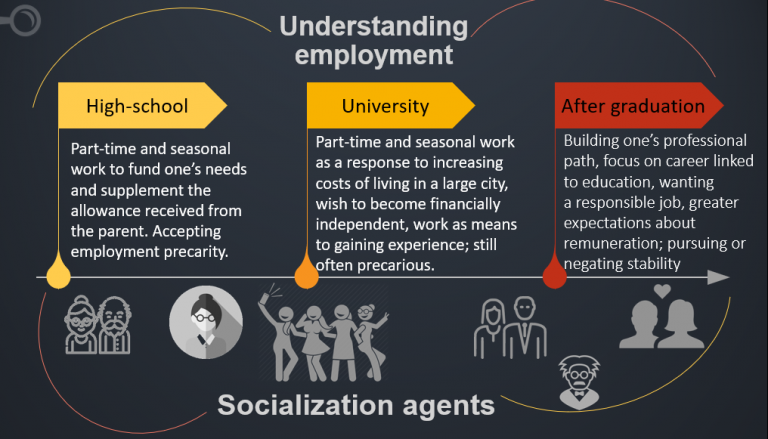Peer groups and migration in Poland
20 November 2019, 6:00 pm–9:00 pm

Dr Paula Pustułka and Dr Justyna Sarnowska (SWPS University, Warsaw)
This event is free.
Event Information
Open to
- All
Availability
- Yes
Cost
- Free
Organiser
-
SSEES
Location
-
Masaryk RoomSSEES16 Taviton StreetLondonWC1H 0BW
This seminar will showcase selected findings from the ‘Peer groups & Migration’ project, which comparatively looks at education-to-employment transitions of young, Polish adult migrants/movers and stayers from three medium-sized towns in Poland. Underway since 2016, this project entails a Qualitative Longitudinal Study (QLS) and makes it possible to apply a temporal lens to how transitions take place. We rely on the notion of the flexible social time (Adam 1998) to present how individuals subjectively construct not only caesuras and turning points in their biographies, but also how they reconstruct the effects that various socialization agents had on them at various stages. Therefore, the seminar addresses two themes explored in the selection of young people’s (ages 19 to 34) narratives. We drew a subsample of those with university education (n=46, over 2 waves of interviews, a total of 92 interviews) at different stages of transitions to adulthood. In order to structure our analyses, we delineate three phases and corresponding trajectories of young people’s experiences (1) during high-school, (2) throughout higher education and (3) as the young people’s trajectories unfold post-graduation and up to their early 30s. Consequently, the presentation sheds light on the issue of labour market stability and socialization agents as distinctively constructed at the subsequent life-stages.
In the first part of the seminar, we focus on socialization agents to see how their importance is intersected with the passage of time over the life-course stages noted above. We will showcase the meaning of significant others at ‘critical moments’ of making educational decisions, comparing also how this process is shaped within the relational context when an individual chooses high-school versus university level education. In particular, the interweaving role of family members (parents, grandparents, siblings) and peers (friends, acquaintances) will be analyzed in researching educational aspirations, non-formal education, and spatial mobility of students.
The second part applies the temporal lens to the process of meaning-making connected to the significance of work/employment, arguing that the passage of time alters both the experience and evaluation of the events on one’s labour market trajectory. Specifically, we give voice to the interviewees who shared their reflections about (1) working during high-school, (2) combining university education with employment, and (3) transitioning from education to work and their later career trajectories.
 Close
Close

